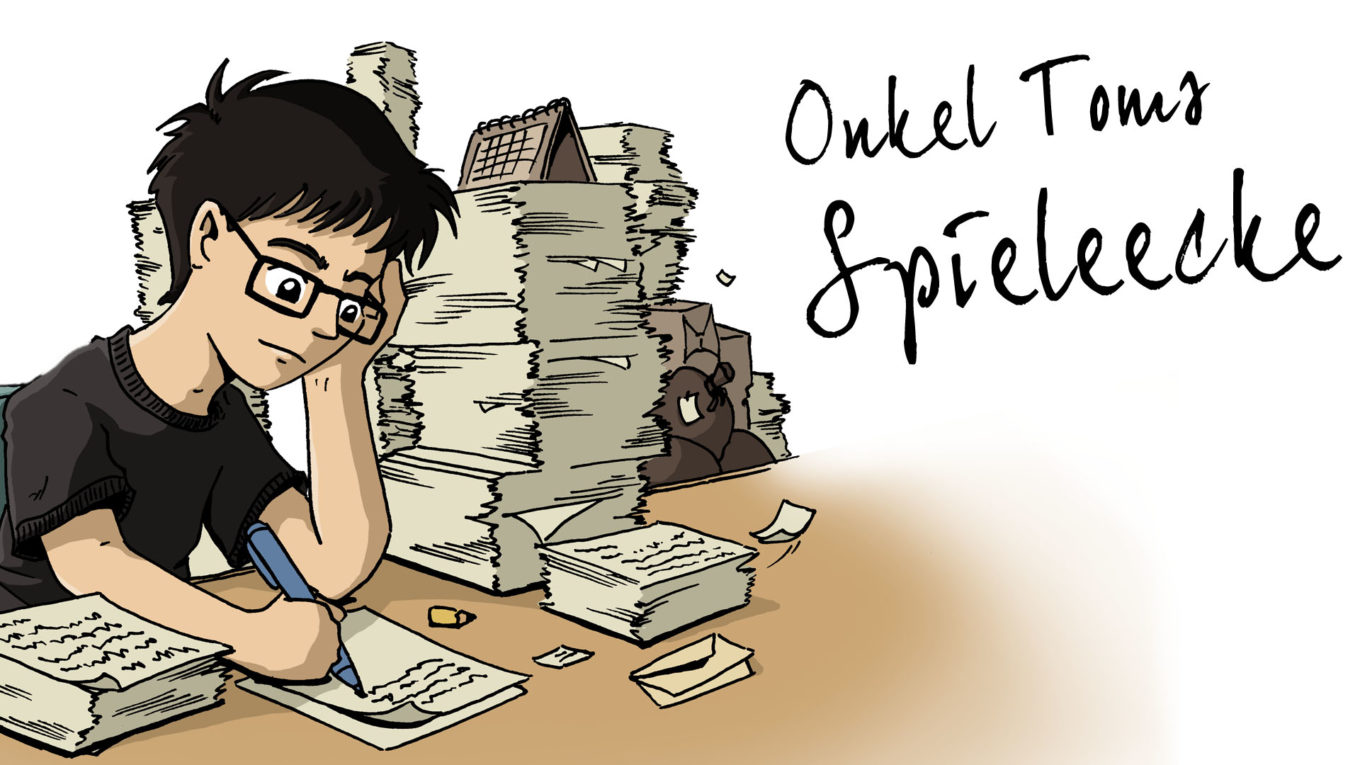Uncle Tom’s Play Corner #38: August-October 2018
The technically demanding months culminated in a marathon, the end of which was only reached with the Vienna Game-City. Still it doesn’t get boring, but a quieter time at least comes within reach and the number of projects still to be carried out has at least become countable.
The obligatory justification and self-pity for the question why it often takes so long between the columns, I have done with it. It has never been asked, but somehow I still feel compelled to answer it regularly. At least I found a certain balance on evening excursions into the jungle with Mrs Croft. However, I can add to the (console) review by my colleague Thomas Leitner: On the PC I had no frame rate break-ins and the graphics was a dream 😉
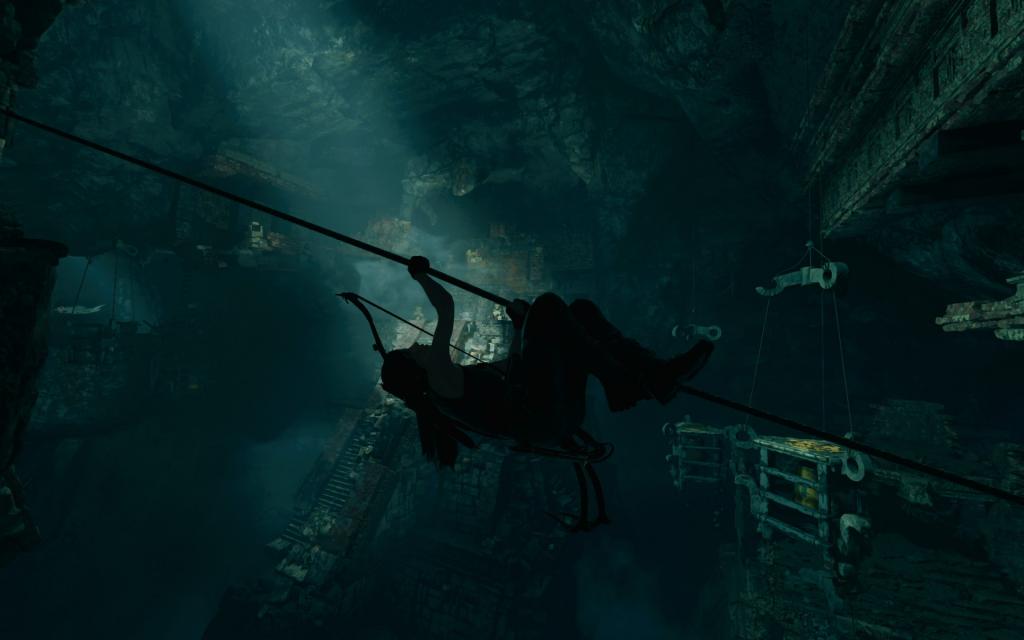
Everything has an end
My self-confidence is fortunately so strengthened that I never shy away from admitting that I sometimes appreciate simple and leisurely titles. Some may only know the successors, but many years ago I was a big fan of Harvest Moon. With cheerful, colourful SNES graphics, you control your character from a bird’s eye view and go out into the world. Unlike Zelda and Co., however, it is limited to an inherited farm, the immediate surroundings and the nearby town. One ploughs the fields, tries out different products in the cultivation, falls trees, removes stony obstacles. The first profits from the sale are invested in better tools, later you may expand into animal husbandry, etc. In the nearby village you can take part in various festivals and perhaps even find your partner for life. Later offshoots of the title expanded the gameplay possibilities enormously, often 2D graphics became 3D. That was too complex for me then partly already.
Graveyard Keeper, on the other hand, is again in the same notch as before – at least in the beginning. Unplanned – the story begins unusually – from one moment to the next we are the gravediggers of a medieval village. Playfully very similar to the Harvest Moon mentioned at the beginning, we are therefore not only agriculturally active, but also have to take care of the local cemetery. Digging graves, burying the dead, setting gravestones and creating green spaces are part of everyday life. But little by little you realize that the game still offers much, much more. After the fields and orchards we can also cultivate bees and grow wine. Not only for the beautification of the cemetery we can learn new ways of wood, stone and metal working. As deacons we soon preach every week in the village church, while we experiment scientifically in the alchemy laboratory below. Deaths brought to us end up on the dissection table, what we do with the “resources” thus gained can be morally very questionable, as can our dealings with the Inquisition, witches and a demonic cult. Interestingly, the game takes no position on such moral questions – you can be as good and/or evil as you want. The title pleases and offers an unbelievable number of possibilities, but you also have to slow down occasionally and not start too many things at once. Otherwise it is easy to lose track.
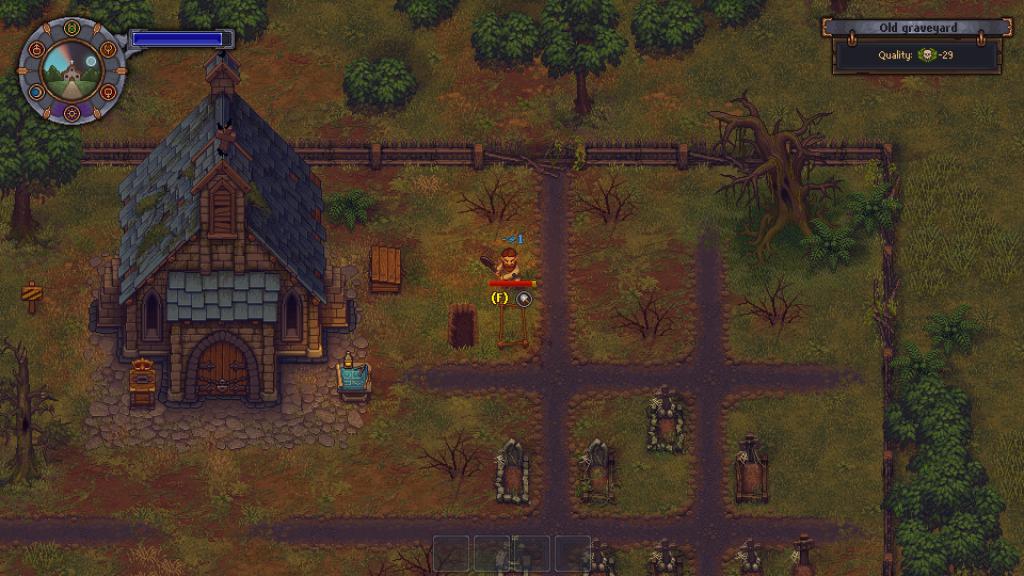
donut, donut, mjam, mjam, mjam
For the subheading, a good friend would hate me, but that’s another story. I only had to think of him while playing – and now when writing again – because for quite a while he was an enthusiastic Katamari player. The recently released Donut County is the exact opposite. You don’t roll up ever larger balls from ever larger objects, but control a hole in the ground and swallow ever larger objects with an ever larger hole. All right so far? Why and why we do this is part of the short and ludicrous story, of which I don’t want to reveal too much either. But there are raccoons. And Quadcopter!
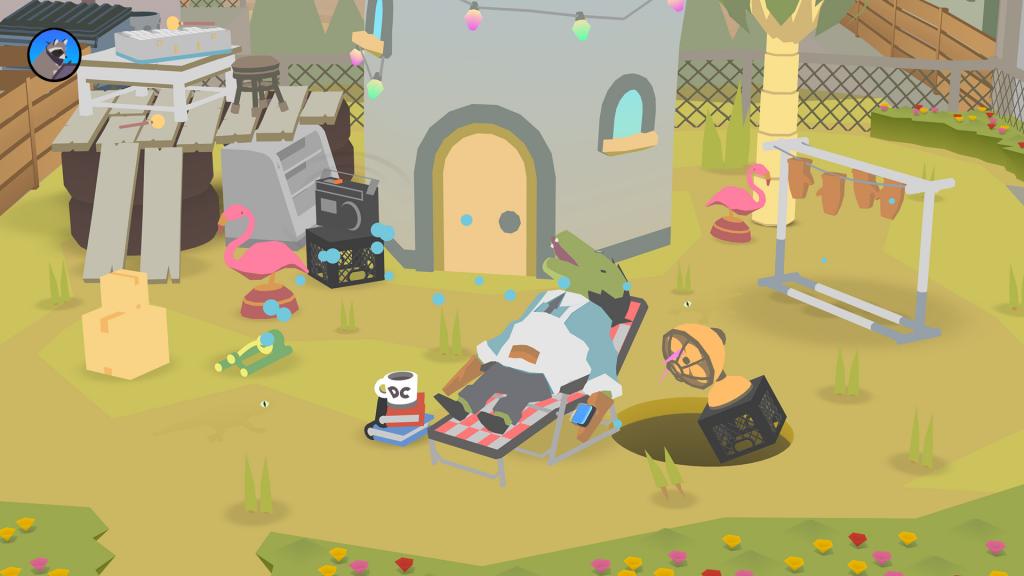
A pleasant surprise
If I could (and had to) memorize publication date lists for the next months earlier, it’s now quite normal that I sometimes don’t have a title on the radar at all and suddenly it’s there. So happened for example with Kingdom Rush: Origins. I like the Tower Defense genre in principle, but I’m picky about the titles I really like. For example, I like the Kingdom Rush series very much and it was one of the few mobile games that could tie me to a tablet for longer. When the first two titles of the series appeared also for the PC the joy was accordingly large and this was also mentioned in my columns. As far as Origins (a prequel to these titles) was concerned, I had honestly given up hope long ago. All the more beautiful when it suddenly appeared on the front page of the Steam Store, unexpectedly for me.
You don’t need to say many words about the gameplay of a Tower Defense title and the general strengths of the concrete series have hardly changed. With only four basic tower variants, the developers have once again succeeded in opening up numerous tactical possibilities. Depending on the level structure and opponent composition, other towers and/or their further development can be advantageous. Anyone who plans badly here will quickly feel the error. As usual, the PC port is somewhat more expensive than in the AppStores, but additional heroes do not have to be purchased. For fans of the series or simply good tower defense title absolute duty!
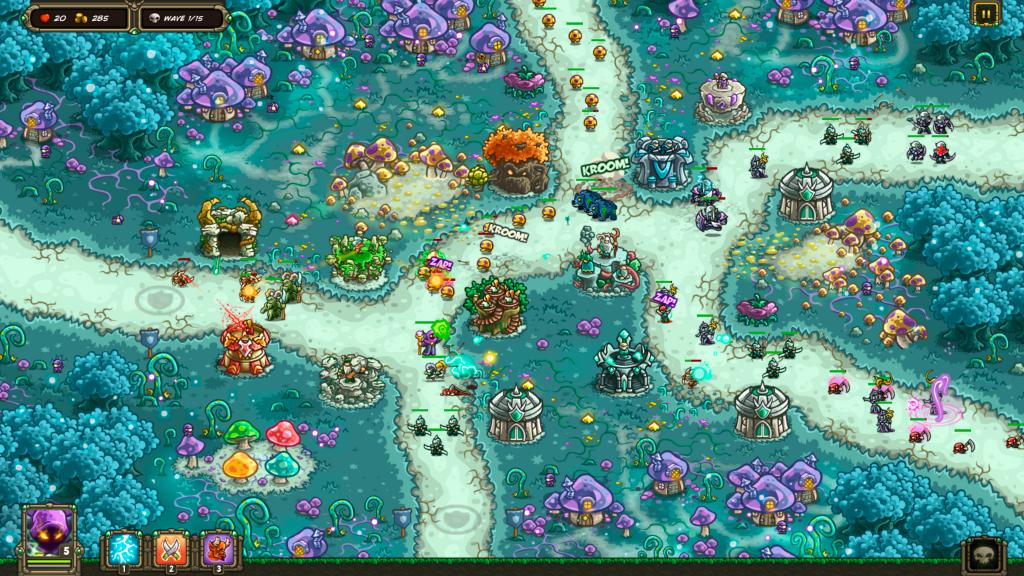
Puzzle, Please
Lucas Pope, maker of the great paper, Please, recently returned with another impressive title. Return of the Obra Dinn takes us back to the beginning of the 19th century. In the run-up to a severe storm, the name-giving ship Obra Dinn is driven into the vicinity of a British port. The ship, which we thought had been lost, seems to have no leader and as the insurance agent of the British East India Company we are supposed to find out what happened and what happened to the 60-man crew. Our only tools – in addition to our mind of course – are a book and a magic compass, which were transmitted to us by strangers at the beginning. In addition to a manifesto of crew and passengers, the book also contains sketches of life on board. So we would already have names and faces once, but we do not yet know how they belong together and what happened to the individual persons. The rest of the almost empty book is reserved exactly for that.
The compass that really has it in it still remains. If you are near a place where someone has died, he transports us back to the past, to the exact time of death. A few seconds of audio follow, which can also contain important clues, as well as a static diorama of the death scene. Through this we can move freely, but interact with nothing. So it means keeping your eyes and ears open: Who is present in the scene? What’s he/she doing? Who’s the victim, how does it get killed? And was it perhaps a third party’s fault? Only by combining the most diverse clues, sometimes spread over several death memories, will we find out what tragic and mysterious fates the crew have come to terms with. The story is gripping, game idea & graphic style – a mixture of ink drawing and wireframe model – are more than creative and I and my grey cells were absolutely thrilled by the title.
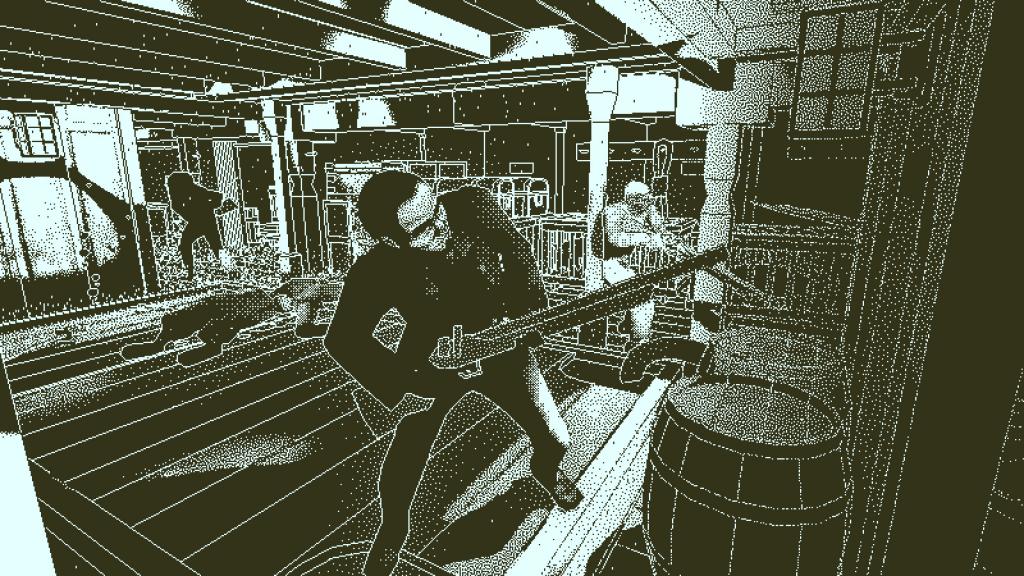
Et cetera
Sometimes time and/or interest was only enough for a short playing. The unofficial spiritual successor of Theme Hospital, for example, was of course a compulsory title for me. Two Point Hospital is a solid hospital management simulator that does not take itself too seriously over long distances. Unfortunately not much played yet, I can still join the praise of my colleague Dave Weisz and will surely take another round through the virtual hospital corridors.
Also We Happy Few I had been on the radar for a while. The early access phase was long and although now officially “ready”, the dystopian and retrofuturistic action adventure is not without technical problems. However, the developers continue to patch and at the end of the year there will be DLCs. You can’t deny the game a really good core either. The story has depth, gameplay and atmosphere reminiscent of genre greats like Bioshock: Infinite. I still can’t say if I’ll play any more. Maybe the title is a bit too depressing for me – which the title wants to be and also conveys well.
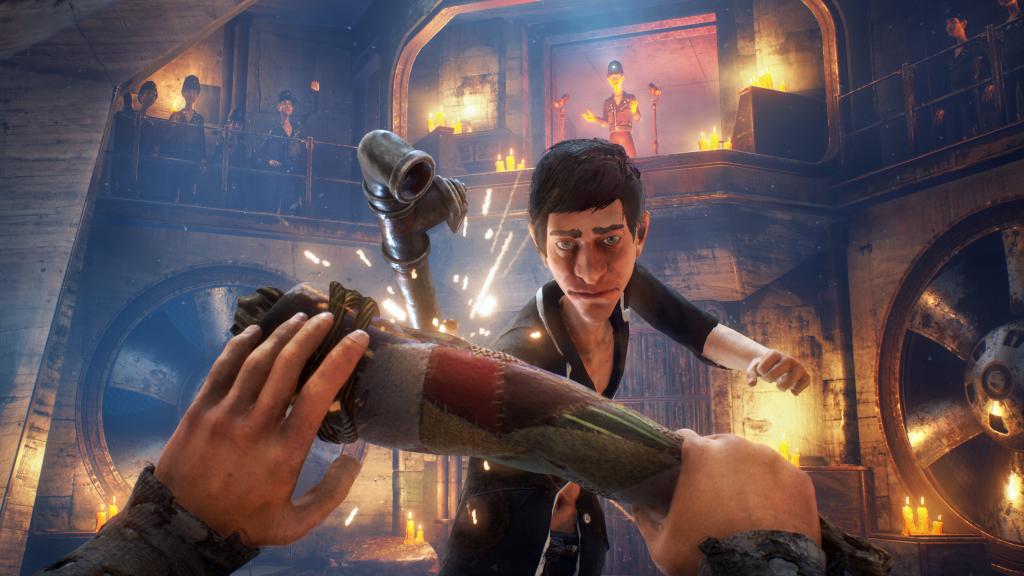
Dead Cells still remains on the list of played, but not widely played tracks of the last months. The genre cues Roguelite and Metroidvania say everything. Those who have been reading with me for some time know that for me – in contrast to many others – constant repetition and frustration are not preferred gameplay elements. In contrast to the really pitiless Roguelikes, the Roguelites can at least make some progress and that’s why Dead Cells was able to grab me for a while. But just for a while, it’s just not my kind of game. Nevertheless, objectively I can only agree with our review: The title has a lot to offer – if you like the genre.
That was it again from me. The next column will (hopefully) come, the “When” is another question.
Until then love
Your Uncle Tom
